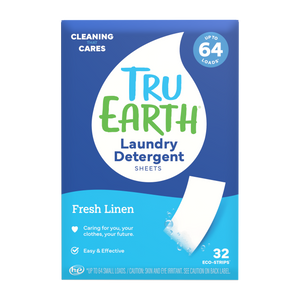The International Day of Awareness on Food Loss and Waste Reduction, observed every year on September 29, was established by the United Nations to shine a light on one of the world’s most pressing sustainability challenges: food waste. This day encourages individuals, businesses, and governments to take action in reducing food loss across the supply chain from farms to supermarkets to our own kitchens. By cutting back on waste, we can save money, conserve resources, and reduce greenhouse gas emissions, all while making sure more food reaches the people who need it most.
Why Reducing Food Waste Matters for the Planet (and Your Wallet)
When food goes to waste, so do all the resources it took to grow, transport, and store it like water, energy, and labor. Once tossed, that wasted food often ends up in landfills, where it releases methane, a powerful greenhouse gas that accelerates climate change. But food waste isn’t just an environmental issue, it’s a financial one, too. The average household throws away hundreds of dollars’ worth of food every year. By making small changes to how we shop, store, and use our food, we can protect the planet while keeping more money in our pockets.
10 Simple, Practical Ways to Prevent Food Waste at Home
Food waste doesn’t just impact your wallet; it also contributes to greenhouse gas emissions when it ends up in landfills. The good news? Small changes in your daily habits can make a big difference. Here are 10 simple, practical ways to reduce food waste at home.
1. Plan Your Meals Before Shopping
Take a few minutes to map out your meals for the week. A shopping list helps you buy only what you need and avoids impulse purchases that often go unused.
2. Store Food Properly
Proper storage keeps food fresher for longer. For example, keep herbs in a jar of water, wrap leafy greens in a damp cloth, and store potatoes away from onions.
3. Use the “First In, First Out” Rule
When you unload groceries, move older items to the front of the fridge or pantry, so they’re used up before newer ones.
4. Get Creative with Leftovers
Transform last night’s roast chicken into tacos or soup or turn veggie scraps into a flavorful broth. Think of leftovers as ingredients, not waste.
5. Embrace Imperfect Produce
“Ugly” fruits and veggies are just as tasty and nutritious as their perfect-looking counterparts. Choosing them helps reduce waste at the farm and grocery level. Check out Ugly Potato Day from a Local Vancouver Farmer [here].
6. Freeze for Later
7. Understand “Best Before” vs. “Use By” Dates
“Best before” often refers to quality, not safety. Many foods are still safe to eat past this date. Trust your senses before tossing.
8. Portion Smartly
Serve smaller portions and let family members go back for seconds. This reduces plate waste, especially for kids who may not finish large servings.
9. Compost Food Scraps
Not everything can be eaten, but most scraps can be composted. Composting turns waste into nutrient-rich soil instead of sending it to the landfill.
10. Donate What You Can’t Use
If you have unopened, non-perishable foods you won’t eat, donate them to a local food bank or community fridge. It’s a simple way to help others while cutting waste. Making changes at home is important, but you can also strengthen your impact by supporting brands that are tackling food waste and helping to create a more sustainable food system.
3 Brands Making a Difference in the Fight Against Food Waste
Odd Bunch Canada is a mission-driven produce delivery service (founded in Ontario in 2017) that combats food waste by rescuing “odd” or cosmetically imperfect fruits and vegetables that grocery retailers often reject due to size, shape, or appearance. Since launching, Odd Bunch has already diverted over 10 million pounds of food from landfills and has also donated over 1.7 million pounds to food-insecure communities.
This B-Corp-certified company offers an app-based platform where consumers buy surplus food from cafés, bakeries, and restaurants at discounted prices, saving millions of meals from going to waste.
By upcycling this fruit, Barnana not only reduces food waste but also supports farmers and promotes a more sustainable food system. Barnana takes imperfect bananas and plantains that would otherwise be discarded and transforms them into delicious snacks like chips and chewy bites.
This September 29, you can make a real difference. Start by checking your fridge and pantry for foods that need to be used, plan your meals to prevent waste, and get creative with leftovers. Even small steps like composting scraps or sharing surplus food with neighbors add up. Join the movement today and help reduce food waste while protecting the planet and your wallet.

